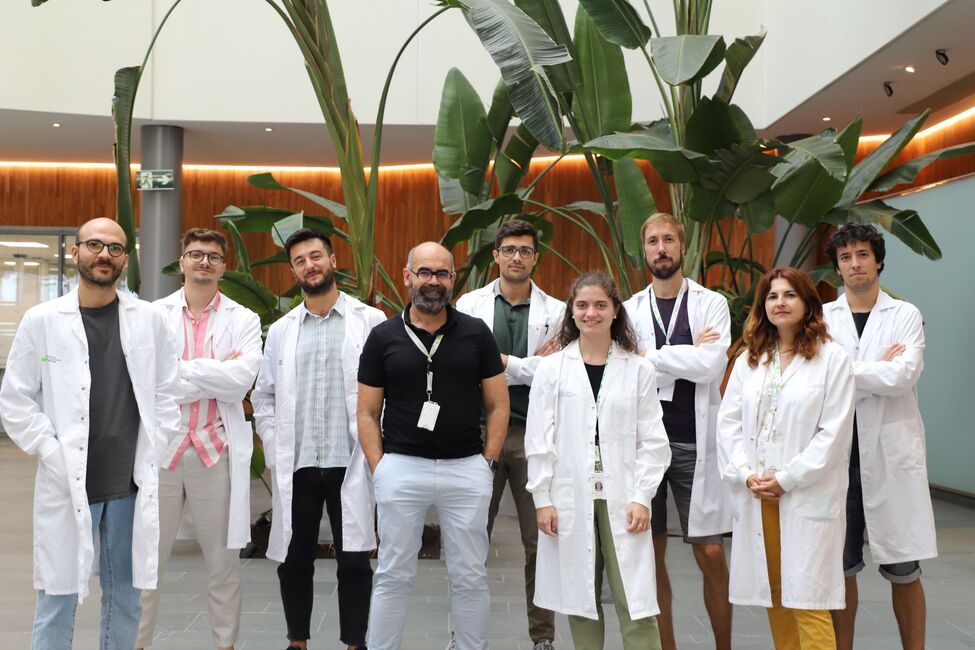Researchers find epigenetic alterations in the immune system behind severe Covid-19
Monocytes from severe covid-19 patients show an altered epigenetic status, according to results by the Epigenetic and Immune Disease group of the Josep Carreras Leukaemia Research Institute. The alterations found in these cells, key in promoting inflammation, can explain features of the aberrant immune response against Sars-Cov-2 infection, such as impaired communication with other immune cells and maturation defects. This comprehensive analysis of monocyte’s epigenetics under severe covid-19, the first of its kind, stresses the importance of these cells in modulating the immune response.

The immune response is a coordinated action of many immune cells to protect our body from infections and one of the first cells to sense a threat are monocytes, the largest white blood cell found in the blood stream. Monocytes are a sort of “multi-purpose” cells, dealing with viruses, bacteria and cellular debris.
Upon encountering a pathogen, monocytes trigger a highly complex network of interactions with other immune cells to promote local inflammation and recruit the lymphocytes, the heavy weaponry of the immune system. Failure to do so in a proper way, may lead to hyperinflammation and sepsis, a grave condition that can result in multiorgan failure.
To start a proper immune response, the monocyte must reprogram itself and start producing a new set of molecules called cytokines, the long-range communication system of immunity. Such reprogramming is driven by epigenetic changes in the monocytes DNA, allowing for the activation of genes that were dormant and the silencing of others that were active.
Now, for the first time, researchers from the Epigenetics and immune disease group led by Dr. Esteban Ballestar at the Josep Carreras Leukaemia Research Institute, have described the plethora of epigenetic changes happening in monocytes during the inflammation process in severe Covid-19 patients. Their results show significant differences between healthy donors versus severe Covid-19. The original publication has been recently published at the high impact journal Genome Medicine and is authored by Gerard Godoy-Tena, with the collaboration of researchers from the Wellcome Genome Campus (UK), the University of Cambridge (UK) and the Intensive Care Unit and Immunology Departments of Vall d’Hebron Hospital (Spain). The study received support from the Chan Zuckerberg Initiative and the Unstoppable campaign of the Josep Carreras Leukaemia Foundation.
According to researchers, in severe Covid-19 monocytes an aberrant epigenetic profile is found, leading to the production of immature cells with an altered crosstalk with other components of the immune system, like NK cells and regulatory T lymphocytes. Also, many genes linked to proinflammatory cytokines and virus-induced sepsis have been found to be active, paving the path to organ dysfunction.
Overall, the analysis from Godoy-Tena and Dr. Ballestar offers new clues to understand what goes wrong in severe Covid-19 patients, so wrong as to put their lives at risk. Hopefully, the new set of data will be the onset of new therapeutic approaches to deal with Sars-CoV-2 infections in the future.
Reference article:
Godoy-Tena, G., Barmada, A., Morante-Palacios, O. et al. Epigenetic and transcriptomic reprogramming in monocytes of severe COVID-19 patients reflects alterations in myeloid differentiation and the influence of inflammatory cytokines. Genome Med 14, 134 (2022). https://doi.org/10.1186/s13073-022-01137-4